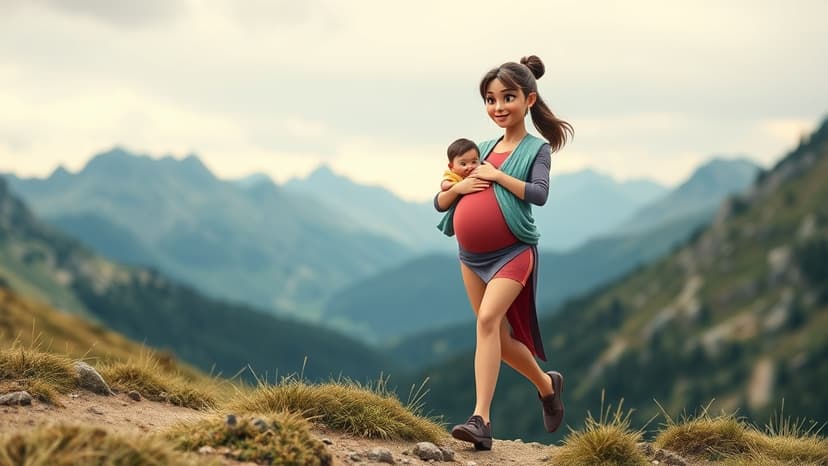Home / Health / Nomadic Gujjar Women Brave Childbirth in Remote Mountain Treks
Nomadic Gujjar Women Brave Childbirth in Remote Mountain Treks
14 Nov, 2025
Summary
- Gujjar women give birth during long seasonal treks, often without access to medical care
- Maternal mortality remains high as women arrive at hospitals in critical condition
- Traditional midwives struggle to save mothers and babies in remote, resource-scarce areas

As of 2025-11-14T06:40:19+00:00, the plight of pregnant Gujjar and Bakarwal women in Jammu and Kashmir continues to be a pressing concern. These nomadic herders undertake long seasonal treks spanning over 134 miles (215km) through the Pir Panjal mountains, and for those who go into labor during the journey, the situation is dire.
Last month, 23-year-old Fatima Deader experienced the first labor pains just as the caravan of about 70 pastoralists reached the midway point of their trek. With no access to medical facilities, Fatima was assisted only by her mother and a traditional midwife, Saira Begum, in a damp canvas tent. Hours after giving birth, Fatima had to remount her horse, her newborn carefully tied to her, as the group continued their arduous journey through the dense forest.
This is a common occurrence for Gujjar and Bakarwal women, who often give birth under trees, by riverbanks, or in forest shelters, sometimes days without a proper meal. Those who manage to reach district hospitals often arrive in a critical condition, suffering from severe anemia, infections, or complications from obstructed labor.
The maternal mortality ratio in Jammu and Kashmir is estimated to be 46 per 100,000 live births as of 2022, better than the national average, but these figures fail to capture the experiences of nomadic women, whose preventable deaths often go unrecorded. Public health researcher Dr. Mushtaq Wani explains that the state's data is skewed towards hospital deliveries, while women on migration routes rarely reach clinics in time.
The lack of accessible healthcare is compounded by poverty, early marriage, and malnutrition among these communities. Many young girls, like 16-year-old Fozia Choudhary, enter pregnancy already physically underdeveloped and dangerously weak, increasing the risk of maternal and neonatal complications.
As the snow melts and the annual migration begins, the Gujjar and Bakarwal herders will once again face the daunting challenge of childbirth in the remote mountain passages. With limited resources and a healthcare system that has yet to adequately address their needs, the survival of these nomadic mothers and their newborns remains a constant struggle.



